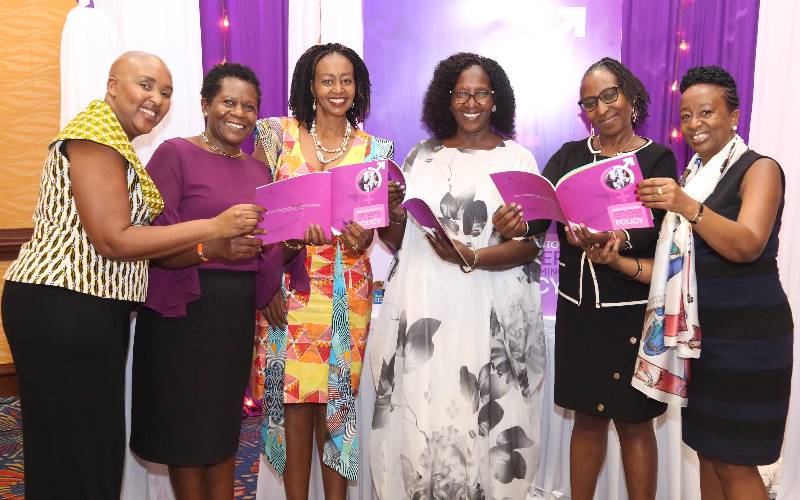×
The Standard e-Paper
Home To Bold Columnists

KEPSA representatives during the launch of the Private Sector Gender Mainstreaming Policy on March 24, 2022.
The Kenya Private Sector Alliance has launched the first private sector gender mainstreaming policy.